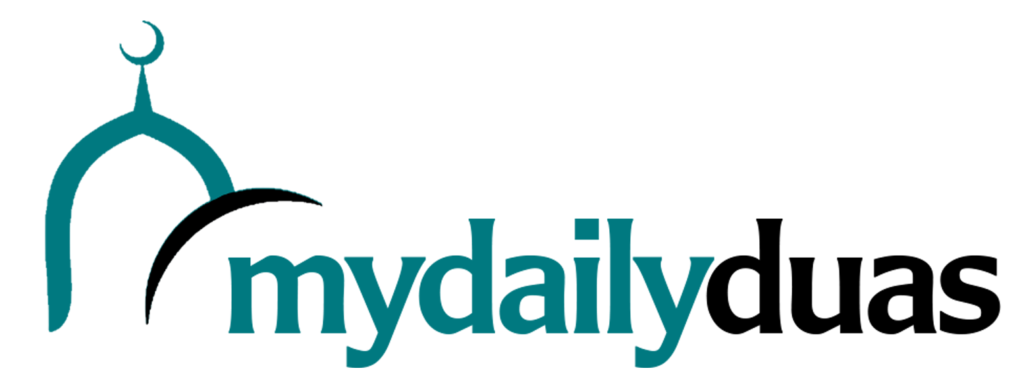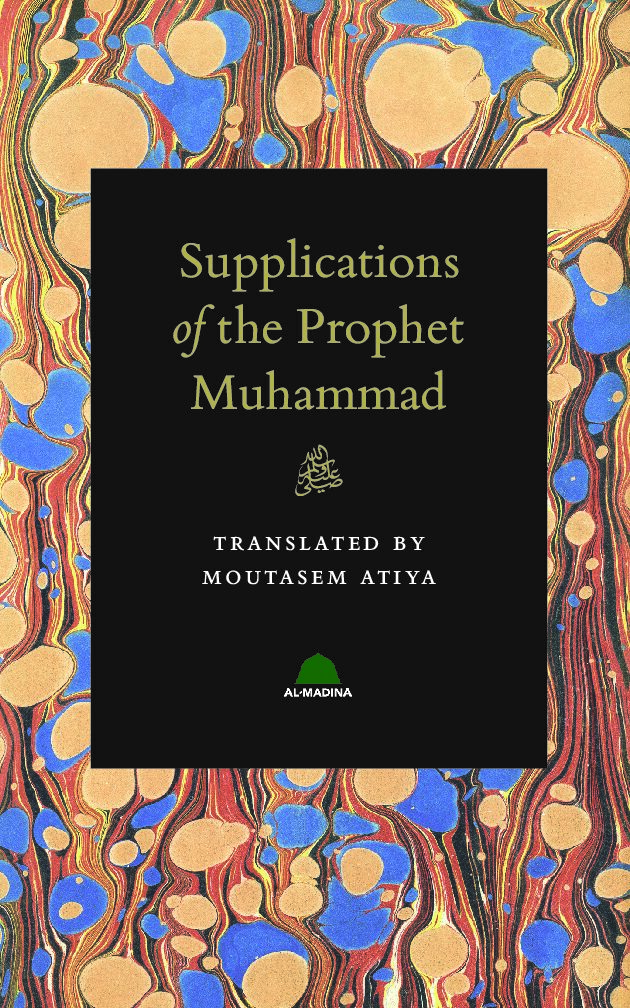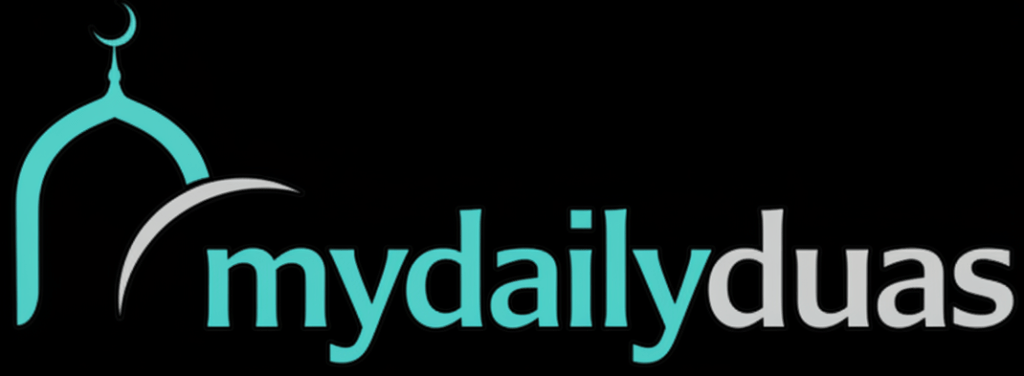Social Interactions
After Sneezing
اَلْحَمْدُ للهِ
(1x)
Praise be to Allah.
Al-ḥamdu li-llāh.
“The Messenger of Allah ﷺ said, “If anyone of you sneezes, he should say [the above].” (Bukhārī 6224)
The Messenger of Allah ﷺ said, “Allah likes sneezing and dislikes yawning, so if someone sneezes and then praises Allah, then it is obligatory on every Muslim who heard him, to say: May Allah have mercy on you (Yarḥamuka-llāh). But as regards yawning, it is from Shaytan, so one must try one’s best to stop it, if one says ‘Ha’ when yawning, Shaytan will laugh at him.” (Bukhārī 6223)
Two men sneezed before the Prophet ﷺ. The Prophet ﷺ said to one of them, “May Allah bestow His Mercy on you,” but he did not say that to the other. On being asked (why), the Prophet ﷺ said, “That one praised Allah (at the time of sneezing), while the other did not praise Allah.” (Bukhārī 6221)
The Messenger of Allah ﷺ said, “The rights of a Muslim on the Muslims are six. It was said to him: “O Messenger of Allah ﷺ, what are these?” He replied: “When you meet him, offer him greetings; when he invites you to a meal accept it, when he seeks your council give him, and when he sneezes and says: “All praise is due to Allah,” you reply; and when he falls ill visit him; and when he dies follow his funeral. (Muslim 2162)”
Your Companion Should Reply
يَرْحَمُكَ اللهُ
(1x)
May Allah have mercy on you.
Yarḥamuka-llāh.
The Messenger of Allah ﷺ said, “If anyone of you sneezes, he should say ‘Al-ḥamdu li-llāh’ (Praise be to Allah), and his (Muslim) brother or companion should say to him, [the above]. (Bukhārī 6224)
Then You Should Say
يَهْدِيْكُمُ اللهُ وَيُصْلِحُ بَالَكُمْ
(1x)
May Allah guide you and put your affairs in order.
“The Messenger of Allah ﷺ said, ” If anyone of you sneezes, he should say ‘Al-ḥamdu li-llāh’ (Praise be to Allah), and his (Muslim) brother or companion should say to him, ‘Yarḥamuka-llāh’ (May Allah bestow his Mercy on you). When the latter says ‘Yarḥamuka-llāh”, the former should say [the above].” (Bukhārī 6224)
The Jews used to try to sneeze in the presence of the Prophet ﷺ hoping that he would say to them: “Allah have mercy on you!” but he would say: [the above].” (Abū Dāwūd 5038)”
When Greeting a Muslim
السَّلاَمُ عَلَيْكُمْ وَرَحْمَةُ اللَّهِ وَبَرَكَاتُهُ
(1x)
Peace be upon you, and the mercy and blessings of Allah.
ʿImrān b. Ḥusayn (raḍiy Allāhu ‘anhu) said: “A man came to the Messenger of Allah ﷺ and said: ‘Peace be upon you.’ He responded and then he sat down. The Prophet ﷺ said: ‘Ten.’ Then another came and said: ‘Peace be upon you and the mercy of Allah.’ He responded to him and he sat down. The Prophet ﷺ said: ‘Twenty.’ Then another came and said: ‘Peace be upon you and the mercy and blessings of Allah.’ He responded to him and he sat down. The Prophet ﷺ said: ‘Thirty.’” (Abū Dāwūd 5195)
Abdullāh b. ʿAmr b. ʿĀṣ (raḍiy Allāhu ‘anhu) reported that a man asked the Messenger of Allah ﷺ: “Which part of Islam is the best?” He replied: “That you feed people and greet those whom you know and those whom you don’t know.” (Bukhārī 12)
Abū Hurayrah (raḍiy Allāhu ‘anhu) narrated that the Messenger of Allah ﷺ said: “Allah created Adam in His form, and his height was sixty cubits. When He had created Adam, He told him: ‘Go and greet that group of angels who are sitting down, and listen to what they greet you with; for that will be your greeting and the greeting of your progeny.’ He said: ‘Peace be upon you.’ They said: ‘And upon you be peace and the mercy of Allah.’ They added ‘the mercy of Allah.’” (Bukhārī 3326)
Barā’ b. ʿĀzib (raḍiy Allāhu ‘anhu) related that the Messenger of Allah ﷺ instructed seven things: visit the sick, follow the funeral processions, respond when someone sneezes, help the weak, assist the oppressed, extend greetings and fulfil vows. (Bukhārī 1239)
Abū Hurayrah (raḍiy Allāhu ‘anhu) reported that the Messenger of Allah ﷺ said: “You will not enter Paradise until you have true faith, and you will not have true faith until you love one another. Shall I not show you a thing which, if you did, would cause you to love one another? Exchange greetings amongst yourselves.” (Muslim 54)
ʿAbdullāh b. Salām (raḍiy Allāhu ‘anhu) narrated: “I heard the Messenger of Allah ﷺ say: ‘O people, exchange greetings, feed people, maintain family ties and perform salah while others are sleeping, and you will enter the Paradise of your Lord in peace.” (Tirmidhī 2487)
Isḥāq b. ʿAbdullāh b. Abī Talḥa (raḥimahullāh) related that Ṭufayl b. Ubayy b. Kaʿb (raḥimahullāh) told him that he used to go to the house of ʿAbdullāh b. ʿUmar (radiy Allāhū ‘anhumā) and go with him to the market. ʿAbdullāh did not pass by any ragman, merchant, poor man or anybody else without greeting him. Ṭufayl said: “I came to Abdullāh b. ʿUmar one day and he followed me to the market. I asked him: ‘What do you do in the market, as you do not stop for any merchandise, or ask any price, or bargain, or sit in the gatherings of the market?’ He replied: ‘I say: “Sit with us, let’s talk.’” Ibn ʿUmar (radiy Allāhū ‘anhumā) told me: ‘O Abū Baṭan’, ‘we only come for the greeting. We greet everyone we meet.’” (Muwaṭṭā)
When Thanking Another Person
جَزَاكَ اللَّهُ خَيْرًا
(1x)
May Allah reward you with goodness.
Usāmah b. Zayd (raḍiy Allāhu ‘anhu) narrated that the Messenger of Allah ﷺ said: “Whoever is treated well and says [the above] has expressed praise to the fullest. (Tirmidhī 2036)
When Someone Informs You That They Love You
أَحَبَّكَ الَّذِيْ أَحْبَبْتَنِيْ لَهُ
(1x)
May He for Whose sake you love me, love you.
Aḥabbaka-lladhī aḥbabtanī lahu.
“Anas (raḍiy Allāhu ‘anhu) said: “A man was with the Prophet ﷺ when another man passed by. He said: ‘O Messenger of Allah, I love this person.’ The Prophet ﷺ asked him: ‘Have you let him know?’ ‘No,’ he replied. He said: ‘Let him know.’ He met [the same man] and said: ‘I love you for the sake of Allah.’ He replied with [the above].” (Abū Dāwūd 5125)
Miqdām b. Maʿdikarib (raḍiy Allāhu ‘anhu) narrated that the Prophet ﷺ said: “If any of you loves a person as his brother, he should tell him that he loves him.” (Tirmidhī)
Ayat al-Kursi: The Greatest Protection
أَعُوْذُ بِاللّٰهِ مِنَ الشَّيْطَانِ الرَّجِيْمِ. اَللّٰهُ لَآ إِلٰهَ إِلَّا هُوَ الْحَىُّ الْقَيُّوْمُ ، لَا تَأْخُذُهُۥ سِنَةٌ وَّلَا نَوْمٌ ، لَهُ مَا فِى السَّمٰـوٰتِ وَمَا فِى الْأَرْضِ ، مَنْ ذَا الَّذِىْ يَشْفَعُ عِنْدَهُ إِلَّا بِإِذْنِهِۦ ، يَعْلَمُ مَا بَيْنَ أَيْدِيْهِمْ وَمَا خَلْفَهُمْ ، وَلَا يُحِيْطُوْنَ بِشَىْءٍ مِّنْ عِلْمِهِٓ إِلَّا بِمَا شَآءَ ، وَسِعَ كُرْسِيُّهُ السَّمٰـوٰتِ وَالْأَرْضَ، وَلَا يَئُوْدُهُۥ حِفْظُهُمَا ، وَهُوَ الْعَلِىُّ الْعَظِيْمُ.
Ubayy b. Kaʿb (raḍiy Allāhu ʿanhu) reported that he had a vessel in which he kept dates. He found that its quantity was decreasing. So he kept guard on it one night and saw a creature that resembled an adolescent boy. Ubayy greeted him and he returned his greeting. Ubayy then asked him, “What are you, a jinnī or a human?” He replied, “A jinnī.” So he said to him, “Show me your hand.” So he showed him his hand, and it looked like a dog’s paw with dog’s fur. He said, “This is how the jinn are created. The jinn know that there is no one amongst them who is stronger than me.”
Ubayy asked him, “What caused you to do what you did?” He replied, “We heard that you are a man who loves charity, and we came to take our share from your food.’” Ubayy asked him, “What will protect us from you?” He replied, “Reading Āyah al-Kursī from Sūrah al-Baqarah [i.e. the verse above]. If you read it in the morning, you will be protected from us till the evening. And if you read it in the evening, you will be protected from us till the morning.”
Ubayy said: “The following morning, I went to the Messenger of Allah ﷺ and told him about what had happened. The Messenger of Allah ﷺ said, “The evil one spoke the truth.” (Ḥākim 2108)
Brief Commentary
• Āyah al-Kursī begins with ‘Allah’. According to many scholars, ‘Allah’ is the Greatest Name of Allah, and is the most frequently mentioned Name in the Qur’ān, appearing over 2,500 times.
• ‘Allah’ refers to **the One who is adored and worshipped**. Thus, the āyah begins by establishing the greatest truth: that Allah is the sole being that deserves to be worshipped.
• It then describes Allah as the “Ever Living (al-Ḥayy)”: The one who has all the attributes of life in the most complete form e.g. hearing, seeing, knowing, power etc. Al-Ḥayy is the one who will never die, and nor is He touched by even the ‘smaller death’ (sleep). His life is absolutely perfect, and He alone gives life.
• Since He alone is the absolute source of life, and possesses the attributes of perfect life, it only makes sense that He alone is “**The Sustainer of all** (al-Qayyūm)”. Al-Qayyūm is the one who maintains all; but needs none to maintain Him. Everything within the heavens and the earth is dependent on Allah and needs Him to sustain and manage their existence. He, however, is completely Self-Sustaining, and independent of any of His creation.
• Whoever needs to sleep will always be deficient in maintaining and sustaining the affairs of His subjects. The Prophet ﷺ said, “Allah does not sleep, and it is not befitting that He should sleep” (Muslim). Not only does Allah not sleep, he does not even feel drowsy: ‘**Neither drowsiness overtakes Him nor sleep**.’ This is also very comforting, as we do not need to worry about the heavens and planets falling on us, or to worry that He may be unavailable when we may need Him.
• ‘**To Him Alone belongs whatever is in the heavens and whatever is on the earth**’: Allah is the Master and Owner of all. He is the Owner and King of everything in the heavens and the earth. **Nothing happens in this world except that Allah has willed it**. Everything is subject to His will and decree. We are only custodians of what we have been given, not the true owners.
Once we firmly believe that what we own is only a loan from Allah for a limited time, we will feel content and humble. We will empty our hearts from greed and stop chasing worldly pleasures. Whether we are tested with wealth or poverty, our hearts will remain attached to the True Owner of the heavens and the earth: Allah. This part of the verse also grants believers solace, as they know who to turn to for all their needs.
• After mentioning His ownership and complete dominion, Allah says, ‘**Who is it that can intercede with Him except with His permission?**’ This further explains Allah’s oneness and uniqueness. No one even comes close to sharing His power and will. Only those He will give permission to on the Day of Judgement (such as our beloved Messenger ﷺ) will be allowed to intercede.
• ‘**He knows what is before them and what will be after them, and they encompass not a thing of His knowledge except for what He wills**’: Allah’s knowledge is not just limited to the present. It also encompasses the past, and extends to the future.
This belief should fill our hearts with awe and fear, as everything we do is within Allah’s knowledge. Likewise, it should make us content with our decree, as it was decreed by the One Who knows how things will develop in the future.
• All the technological advancements that we see now are only due to Allah granting us the permission to encompass this knowledge. Thus, we should always remain humble, and thankful to Allah.
• We are then introduced to one of Allah’s greatest creations, allowing us to ponder on Allah’s greatness: ‘**His Kursī (footstool) extends over the heavens and the earth**’: The Prophet ﷺ said, “The seven heavens in comparison to the Kursī is nothing but like a ring thrown in a desert, and the excellence of the Throne of Allah over the Kursī is like the excellence of that desert over that ring.” (Bayhaqī)
Our limited minds are unable to comprehend the Greatness of Allah. However we can attempt to appreciate His Greatness by pondering over His creation. When we ponder on the greatness of Allah’s creation such as the heavens, the earth, His Kursī and His Majestic Throne, and then realise our own inability to comprehend them due to their greatness, we arive at the most important realisation: how Great must their Creator be!
• By knowing this, it is then no surprise that ‘**their preservation tires Him not**’ as the heavens and the earth are insignificant in size to Him. Allah cares for and provides sustenance to billions of beasts and creatures: those that crawl in the land, those that swim in the ocean, and those that fly in the sky. And yet, He never becomes tired.
• The ending ‘**And He is the Most High, the Magnificent**’ perfectly summarises the verse, as the whole verse is describing the greatness of Allah. These are two of the majestic Names of Allah. Allah is Great in Himself. All of His Names and Attributes are great and most perfect. Allah is Great in His might, and Great in His knowledge. Everything that He does is Great. Allah is far, far above any weakness or defect. No one can overpower Him, and He is Greater than anything we can imagine.
` `
` `
**Benefits & Action Points**
*The Greatest Ayah*
• The main theme of all of the morning and evening adhkār is **tawḥīd** (the Oneness of Allah), and at the forefront is Āyah al-Kursī.
• Āyah al-Kursī is the greatest verse of the Qur’ān. This is because it beautifully describes who Allah is. **The most majestic verses in the Qur’ān are the verses that talk about Allah**, as there is no topic of discussion which is more grandiose, more majestic and more beautiful than Allah (ʿazza wa jall). The āyah starts off with one word ‘Allah’; and then goes on to mention 20+ of Allah’s Names and Attributes.
• Āyah al-Kursī is a gift to us from Allah, our Creator and Master. We were created to worship and know Allah; and in just a few lines He has perfectly summarised to us who He is, including His Greatness, His Power, His Knowledge, His Kingdom, and **ultimately His Oneness**. There is nothing on earth that will teach us about Allah better than this āyah.
• lbn al-Jawzī (raḥimahullāh) writes, “By Allah, if an intelligent believer recited Sūrah al-Hadīd, the end of Sūrah al-Hashr, Ayah al-Kursī, and Surah al-Ikhlās with **deep thought** and **contemplation**, his heart would burst open out of the awe (of Allah), and he would be baffled by His Greatness.”
• Āyah al-Kursī contains the **Greatest Names of Allah** (al-Ḥayy and al-Qayyūm), as mentioned by the Prophet ﷺ (Abū Dāwūd). When we ask Allah by these Names, our duʿas are accepted.
• Āyah al-Kursī has a tongue and two lips that glorify Allah at the leg of the Allah’s Throne (as reported in Aḥmad).
` `
` `
**Recite it 8x a Day**
• Memorise this verse and recite it every day. It is sunnah to recite Āyah al-Kursī every day:
1) **Before sleeping**: “When you lie down in your bed, recite Āyah al-Kursī from beginning to end; a guardian angel will stay by you and no devil will approach you, until you wake up in the morning” (Bukhārī).
2) **After every farḍ prayer**: “Whoever reads [Āyah al-Kursī] after every obligatory prayer, there is nothing that will prevent him from entering Paradise except death” (Nasā’ī).
3) **In the morning and evening**: “Reading Āyah al-Kursī from Sūrah al-Baqarah. If you read it in the morning, you will be protected from us (i.e. the devils) till the evening. And if you read it in the evening, you will be protected from us (i.e. the devils) till the morning” (Ḥākim).
• By reading this verse a multiple number of times daily, we refresh our knowledge of Allah, renew our īmān in Him, and affirm His Oneness.
` `
` `
**A Powerful Source of Protection**
• A great portion of the morning and evening duʿās revolve around asking Allah for protection. By starting off the adhkār with Āyah al-Kursī, we begin to appreciate the **greatness of Allah**. This should help us to be more attentive and optimistic when reciting the remainder of the adhkār.
• Āyah al-Kursī is one of the strongest means of protection from the devils. The Messenger of Allah ﷺ said, “In Sūrah al-Baqarah, there is a verse which is the best verse of the Qur’ān. **It is never recited in a house except that the Shaytān leaves**: it is Āyah al-Kursī” (Ḥākim).
` `
` `
**Living by Āyat al-Kursī**
• By knowing that the entire universe belongs to Allah and that He possesses the ultimate power and knowledge, we **rely** only on Him. Knowing that He always takes care of us and is the Perfect Manager of the entire creation makes us **love** Him and place our **hope** in Him.
• Since He is the Magnificent, we are in **awe** of Him and always **humble** ourselves to Him. He is the Only one who possesses all of these unique attributes, so we **submit** ourselves to Him and **worship Him** Alone.




